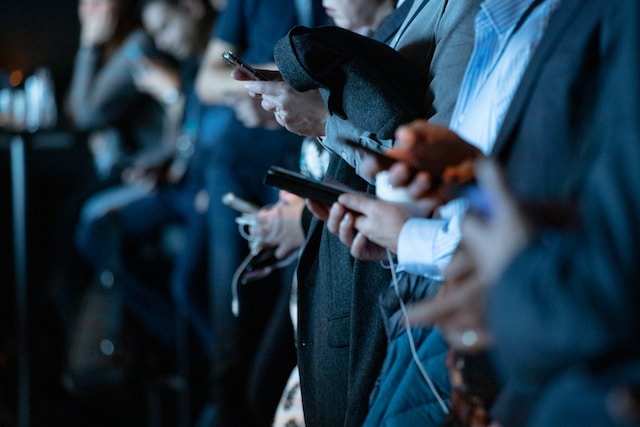Why Social Media is More Harmful Than Helpful
Social media has completely transformed the way we communicate, share information, and connect with others, making it an indispensable part of our daily lives.
However, with the rise of social media, there has been an increasing concern about its negative impact on mental health, self-esteem, and overall well-being. While social media has its benefits, it is becoming increasingly clear that the harms outweigh the advantages.
According to research, overuse of social media has been linked to a range of mental health issues, such as anxiety, depression, and addiction.
Social media platforms are designed to keep users engaged and addicted, which can lead to a constant need for validation and approval. This can result in a negative impact on self-esteem and self-worth, as users compare themselves to others and seek validation through likes and comments.
Furthermore, social media can also contribute to the spread of misinformation, cyberbullying, and online harassment. The anonymity provided by social media can make people more likely to engage in negative behavior, which can have serious consequences for both the victim and the perpetrator.
Despite efforts to combat these issues, social media platforms have struggled to effectively address these problems, leaving users vulnerable to harm.
Impact on Mental Health
The impact of social media on mental health has been a topic of concern, with research linking it to negative effects. Here are some ways in which social media can potentially affect our mental health:
Depression and Anxiety
Studies have suggested that the use of social media is linked to higher rates of depression and anxiety.
For instance, a 2019 study found that young individuals who spend more than three hours on social media are at a higher risk of experiencing mental health problems.
Furthermore, a study on college students found that access to Facebook led to a 7% increase in severe depression and a 20% increase in anxiety disorder. Social media can also worsen feelings of loneliness and isolation, which are known risk factors for depression and anxiety.
Social Comparison
Social media can lead to social comparison, which can negatively impact mental health. People often present a curated version of their lives on social media, which can make others feel inadequate or like they are missing out. This can lead to feelings of low self-esteem and depression.
Cyberbullying
Cyberbullying is a form of bullying that takes place online. It can be especially harmful because it can happen 24/7 and can be difficult to escape. Social media platforms can be breeding grounds for cyberbullying, which can lead to depression, anxiety, and even suicide.
According to a study, individuals who have been cyberbullied are more likely to experience depression and anxiety compared to those who have not experienced online bullying.
To sum up, social media can potentially have adverse effects on mental health. It is crucial to be aware of our social media consumption and to take breaks when needed. If you are facing mental health challenges, it is essential to seek assistance from a qualified mental health professional.
Negative Effects on Relationships
While social media has become an omnipresent aspect of our daily lives, it has also brought along a range of detrimental effects on our relationships.
In this section, we will discuss some of the most significant ways social media can harm our relationships.
Decreased Face-to-Face Communication
One of the major drawbacks of social media on relationships is the reduction in face-to-face communication it can induce.
When we spend too much time on social media, we may neglect the people around us, including our partners. We may choose to spend time scrolling through our feeds instead of having meaningful conversations with our loved ones. As a result, this can give rise to emotions of disengagement and isolation, which can ultimately damage our relationships.
Miscommunication and Misunderstanding
Social media can also lead to miscommunication and misunderstanding between partners. When we communicate through social media, we lose many of the nonverbal cues that are essential for effective communication.
This can lead to misunderstandings and hurt feelings, which can damage our relationships. Additionally, social media can be a breeding ground for rumors and gossip, which can further exacerbate miscommunications and misunderstandings.
Jealousy and Suspicion
Social media can also fuel feelings of jealousy and suspicion in relationships. When we see our partners interacting with others on social media, we may become jealous or suspicious of their intentions.
We may also feel pressured to present a perfect image of our relationships on social media, which can lead to feelings of inadequacy and insecurity. These negative emotions can put a strain on our relationships and lead to conflict.
Section 4: Addiction and Time Wasting
Dopamine and Addiction
Social media platforms are designed to keep users engaged for as long as possible. One of the ways they do this is by triggering the release of dopamine, a neurotransmitter associated with pleasure and reward.
Every time we receive a notification or a like on a post, our brains release dopamine, which can create a pleasurable sensation and reinforce our desire to keep using the platform.
This can lead to addiction, as users may find themselves constantly checking for notifications or spending hours scrolling through their feeds.
Time Management Issues
Another problem with social media is that it can be a major time-waster. Many users report spending hours each day scrolling through their feeds, responding to messages, and engaging with content.
This can lead to time management issues, as users may find themselves neglecting other important tasks or responsibilities in favor of social media use. In extreme cases, social media use can interfere with work, school, or personal relationships, leading to negative consequences.
Distraction and Procrastination
In addition to time management issues, social media can also be a major source of distraction and procrastination. Many users report feeling distracted by social media notifications or the constant stream of content on their feeds, which can make it difficult to focus on other tasks. This can lead to procrastination, as users may find themselves putting off important work or responsibilities in favor of social media use. Over time, this can have a negative impact on productivity and overall well-being.
Privacy and Security Concerns
Data Collection and Privacy
Social media platforms collect a vast amount of personal data from users, including their browsing history, location, and personal preferences. This data is used to create targeted advertisements and improve the user experience.
However, this data collection raises serious privacy concerns. Users may not be aware of the extent to which their data is being collected and how it is being used. In addition, social media platforms have been known to share user data with third-party companies, raising further concerns about data privacy.
Furthermore, social media platforms have been criticized for their lack of transparency regarding data collection and privacy policies.
Many users do not fully understand the terms and conditions they agree to when signing up for social media accounts. This lack of transparency can lead to users unknowingly sharing personal information that they may not want to be made public.
Identity Theft and Fraud
Social media platforms have become a breeding ground for identity theft and fraud. Cybercriminals can use personal information shared on social media to steal identities and commit fraud.
For example, if a user shares their full name, date of birth, and address on social media, a cybercriminal can use this information to open bank accounts or credit cards in the user’s name.
In addition, social media platforms have been known to be targeted by phishing scams. These scams typically involve cybercriminals creating fake profiles or pages to trick users into sharing personal information. Once the cybercriminal has this information, they can use it for identity theft or fraud.
Online Predators
Social media has also become a platform for online predators to target vulnerable users, including children and teenagers. Predators can use social media to gain access to personal information about their victims, such as their location, interests, and friends. This can make it easier for predators to groom their victims and gain their trust.
Social media platforms have taken steps to combat online predators, including implementing age verification measures and reporting systems. However, these measures are not foolproof, and users must remain vigilant when using social media.
Conclusion
After examining the evidence, it is clear that social media does more harm than good. While it may have some benefits, such as connecting people across the globe and providing a platform for activism, the negative consequences outweigh the positives.
One of the most concerning issues with social media is its impact on mental health. Research has demonstrated that excessive use of social media can cause depression, anxiety, and other mental health issues.
Additionally, social media can be addictive, leading to a cycle of constantly checking notifications and feeling the need to stay connected at all times.
Another issue with social media is the spread of misinformation and fake news. With the rise of social media, it has become easier for false information to spread rapidly, leading to confusion and distrust. This can have serious consequences, such as during a public health crisis when accurate information is critical.
Finally, social media can also have negative effects on relationships and communication. While it may seem like social media allows us to stay connected with friends and family, it can actually lead to feelings of isolation and disconnection. People may feel pressure to present a certain image on social media, leading to inauthenticity and a lack of genuine connection.
Overall, while social media may have some benefits, it is important to be aware of its negative consequences. By being mindful of our social media use and taking steps to limit it, we can mitigate some of these harmful effects and use social media in a more positive way.

